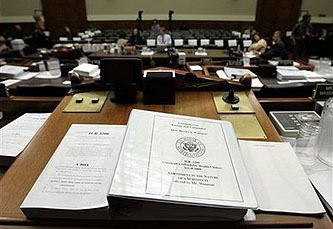I hope the fine folks at CBPP won’t take offense if I point out that this might be the new winner in the “Most Boring Headline Ever” sweepstakes:
Excise Tax on Very High-Cost Health Plans Is a Sound Element of Health Reform
Still, you can’t argue with the truth. It is a sound element of health reform for two big reasons. First, since it’s a tax on health plans,  it rises at the same rate as healthcare costs. This helps ensure that funding for healthcare reform stays budget neutral not just for its first ten years, but over the long haul as well.
it rises at the same rate as healthcare costs. This helps ensure that funding for healthcare reform stays budget neutral not just for its first ten years, but over the long haul as well.
Second, providing funding is only half its appeal. It’s also one of those rare policy measures that (a) might actually pass and (b) might actually slow down the growth of healthcare costs:
The proposed excise tax would make a major contribution to slowing the growth of health care costs by discouraging insurers from offering, and firms from purchasing, extremely generous health insurance coverage that can encourage excess health care utilization. That, in turn, would reduce incentives for excessive health care spending.
Congressional Budget Office (CBO) Director Douglas Elmendorf has stated that changing the tax treatment of high-cost health insurance to reduce its attraction is one of “two powerful policy levers” the federal government has available to encourage changes in medical practice and thereby slow the increase in health care costs. (Changing Medicare’s payment rules is the other.) “Nearly all analysts agree,” CBO has reported, “that the current tax treatment of employer-based health insurance — which exempts most payments for such insurance from both income and payroll taxes — dampens incentives for cost control because it is open-ended.”
For more geeky goodness, read the whole thing. It might be opposed by both labor unions and Republicans, but it’s still a good idea.

















